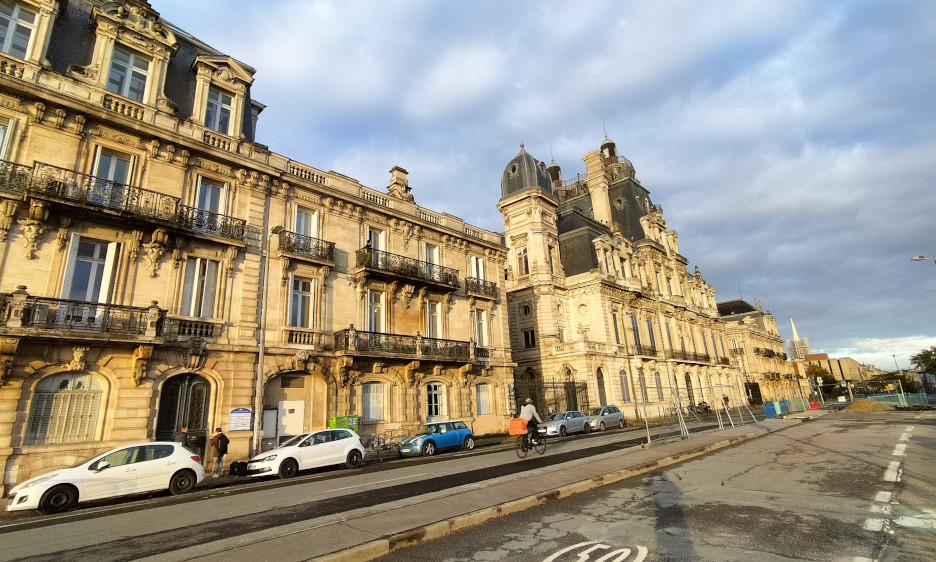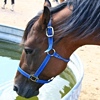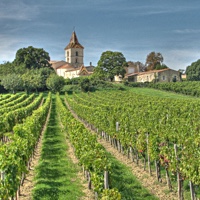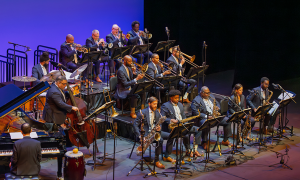Home » Jazz Articles » Live Review » Immanuel Wilkins At Bordeaux Jazz à Descas
Immanuel Wilkins At Bordeaux Jazz à Descas

Courtesy Artur Moral
The quartet impressed with an impeccably athletic technique and a refined, complex musical vision.
Château Théâtre Descas
Jazz À Descas
Bordeaux, France
October 7, 2024
It's easy to find an excuse to visit Bordeaux, the capital of the French department of Gironde. In addition to the world-famous wines made in its legendary terroirs the region has many geographical, historical and cultural attractions. And if one of them, the Jazz And Wine Bordeaux, offers, as part of a cycle called Jazz à Descas, a performance by the Immanuel Wilkins Quartet just four days before the release of its new album, Blues Blood, the excuse becomes a necessity.
That is why we landed in this attractive, lively city two days before the concert to soak up its dynamic atmosphere and its many charms. One of them was the setting for this event, the imposing Château Descas, whose spaces silently contain thousands of stories from its origin in the 16th century as a hospital to its subsequent incarnation as a huge complex of wine cellars, offices and homes erected in the 19th century by the wine merchant Jean Descas, to end in frenetic nights in the 21st century as host to a cabaret and then to two different discos, all now closed. This development culminated in 2006 in the closure of the ostentatious palace, which was a prelude to an abandonment that would last for 16 long years, until the beginning of 2024, when it was reborn as a multipurpose performance hall, eager to host cultural offerings focused mainly on dance, theater and music. But this neglect, happily overcome, still reigns over its location, a dilapidated Quai de Paludate that has undoubtedly seen much better times.
It is well known, although not sufficiently recognized, that behind any kind of intervention that facilitates live musical performance (whether it is the management of a stable space for performances or the organization of an entire festival) there always is an enthusiastic, courageous personality. In this case, the person responsible for such actions is Jean-Jacques Quesada, a musician who later became a driving force for Bordeaux City and its area of influence. Jay, as he likes to be called, is without a doubt a magnetic character, tremendously aware, and who generously shared with us a small part of his very numerous and diverse experiences from his years in New York City alongside monsters such as Steve Lacy and Dave Liebman, to his involvement with the organization of a summer festival that takes place in the châteaux of different wine-producing estates. Stars such as Herbie Hancock, Ron Carter, Charles Lloyd, Pat Metheny and Keith Jarrett have performed there, the latter leaving some of the last recorded notes to be issued commercially—at least until ECM Records surprises us—before his retirement released as Bordeaux Concert (ECM Records, 2022), which was recorded at the 2016 edition of this festival.
The hall, with a capacity of 700 people, was practically full. The audience was predominantly mature (50 and up), with the occasional presence of young people, among them restless, hyper-motivated musical apprentices. The quartet was Wilkins' recent formation: Micah Thomas and Kweku Sumbry, with the substitution of Daryl Johns' double bass for Rick Rosato's. Jay warned that the performance be delayed due to a bomb threat at the nearby Gare de Saint-Jean—the second in four days—to afford some additional time to spectators who came by train. Finally, after about 30 minutes of patient waiting and a second intervention by Jay, in which he introduced the protagonist of the evening as Blue Note Records' new pearl, as well as a socially conscious artist, the quartet materialized with hurried greetings from the leader, a quick introduction by the band and immediate immersion in a contemplative, soothing, performance of a rubato theme in which Thomas' piano repetitively outlined, without variation or embellishment, two open chords on which Wilkins offered spaced comments with a pure, densely respiratory sound, reminiscent of alto masters such as Lee Konitz, Paul Desmond or Art Pepper, and even to Stan Getz's tenor. The composition, "Apparition" was stripped of the vocals and electronics that dress it on the recording. A feeling of seclusion and spiritual trance filled the room, while a certain bewilderment disturbed those who were expecting Wilkins, to be more angular, paroxysmal and hortatory. But hey, the performance had just begun.
The second composition began with the melodic lines that characterize their two previous albums and then gave way to a long, complex, M-Base-styled solo by Wilkins, the tension growing as he advanced. The altoist was followed by an enormous solo by Thomas who displayed his rich harmonic universe, apparently paying tribute to Andrew Hill. Now to Sumbry, a dazzling musical entity who deserves to be seen live. His approach to drums and cymbals combines cool subtlety with polyrhythmic energy, metric complexity with fascinating pauses in aerial suspense, contemporary urban rhythms with the cadences of Mother Africa. The synthesis of these multiple alloys was spectacular. He captured attention at the end of the second composition with a camouflaged protagonism in his accompaniment, and underneath the nostalgic vamp that introduced the third selection. With his bare hands attacking drum heads and metals, he created an earthy, primal—almost animal—warp. Wilkins alto became a soprano, flooding the stage with a humid "After The Rain" atmosphere, which after Thomas' meditations, dissolved.
Having reached the halfway point, Wilkins confirmed that the three previous songs were recorded on Blues Blood, issued by Blue Note days after the concert. So was the next composition, "Matte Glaze" which was once again wrapped in melancholic layers with Wilkins exploring his instrument's low register, extracting Ben Webster-like sounds from it and delivering perhaps his best solo of the night. The band followed with "Afterlife Residence Time" delivered with a now-familiar Wilkinsian development that mixed complexity and kindness. In its architecture and melodic filigrees this suggested Keith Jarrett's European Quartet. Rosato had his finest minutes here, showing a mastery in managing a dizzying 4/4 in which he makes outstanding comments under the choppy, Thomas' spaced-out solo, with Sumbry in Jack DeJohnette mode. Wilkins delivered another lengthy aria, extracting high harmonics from his instrument, with the whole band supporting him at its best. It was one of the greatest moments of the night. As on the album, the composition used a piano vamp on a pedal point with Wilkins and Sumbry joking together in the shadows, perhaps over the references to "Kumbaya." The composition was "Moshpit" with a stellar Sumbry weaving polyrhythms beneath Wilkins, who once again delighted with his his mastery of the lower register.
For as encore, the quartet burst into what seemed to be the middle of a song that emerged as "Blues Blood" with an intense 4/4 in which Wilkins put himself in Parker's mood, seasoned with traces of Cannonball Adderley, Arthur Blythe and Kenny Garrett, in other words, a good portion of the main line of the modern alto sax orthodoxy. After a brief Thomas solo and a tense, magnificent joint passage, the pianist once again paid homage to Hill. Wilkins finished with an apparent concluding apotheosis. But it was just that, an appearance. One of the characteristics that define Wilkins' music is its unpredictability: where one guesses a solo will start, within a few milliseconds a long joint passage takes shape, and where one thinks a piece is coming to an end, an unexpected, rapturous solo discourse emerges. So it was no surprise that Thomas began a new vamp with an openly elegiac mood, on which Wilkins rose from the lower register and created an evocative air à la the Esbjorn Svensson Trio. A relaxing rubato lead to a finale, emerging with the same purity of sound with which the concert began. The feeling of spiritual contemplation was such that when the music fell silent, the delayed applause confirmed the end of an outstanding performance. The quartet impressed with an impeccably athletic technique and a refined, complex musical vision. One might have wished for more development of the material from their first two albums and a little more emotion, whether visceral or sentimental.
With his third album, Wilkins reaffirms himself as a spirit in constant movement, resistant to stylistic and formal pigeonholing. As superb as his first two releases are, especially Omega (Blue Note Records, 2020), the Philadelphian has already been giving clear indications of his musical appetites in some recent recordings as a sideman, such as the collective Here It Is: A Tribute To Leonard Cohen (Blue Note Records, 2022), or in his collaboration on Kenny Barron's Beyond This Place (Artwork Records, 2024), where he approached standards without hesitation.
Wilkins' new work carries out a multidirectional dissection of memory and melancholy, perhaps in search of an inner peace that can only emerge after a conscientious evisceration of those impalpable but latent realities. Blues Blood speaks to us about the nostalgia of times already exhausted, of loved ones forever vanished, or of the sounds and aromas emanating from a humble, familiar kitchen; but also, in a historical and political key, of the liquidly safeguarded organic components of countless enslaved and massacred human beings, or of somewhat more recent racial infamies, such as that suffered by the so-called Harlem Six. All these variables contribute to a record that is more accessible than his two previous ones, one in which the atonality and turbulence that surfaced in those earlier works are set aside. Thus, Wilkins seems to follow a line that is not parallel, but perhaps similar, to that which Robert Glasper and Esperanza Spalding took with their respective Radios without forgetting the probable influence of his most frequent companion, a tremendously mystical Joel Ross.
These new approaches, reduced to the essence of the quartet (namely, without the various collaborations present on the album), were captured, in their most essential aspect, in the Bordeaux performance. Still unaware of the artist's evolution, the audience advanced toward the outside of the hall, comforted by the persistent aftertaste of the chords, melodies and sounds and then immersed ourselves in the deep darkness of the shadowy Quai de Paludate, dissolving in it in the same way that, a few minutes earlier, the last bars of the extraordinary Immanuel Wilkins Quartet had done in the decadent immensity of the Château Descas.
Tags
Live Review
Immanuel Wilkins
Artur Moral
Spain
Barcelona
Blues Blood
Bordeaux
Steve Lacy
Dave Liebman
Herbie Hancock
Ron Carter
charles lloyd
pat metheny
Keith Jarrett
ECM Records
Bordeaux Concert
Micah Thomas
Kweku Sumbry
Daryl Johns
Rick Rosato
Blue Note
Lee Konitz
Paul Desmond
Art Pepper
Stan Getz
Omega
The 7th Hand
Andrew Hill
ben webster
Jack DeJohnette
Cannonball Adderley
Arthur Blythe
Kenny Garrett
Esbjorn Svensson Trio (e.s.t.)
Here It Is: A Tribute To Leonard Cohen
Kenny Barron
Beyond This Place
Robert Glasper
Esperanza Spalding
Joel Ross
PREVIOUS / NEXT
Immanuel Wilkins Concerts
Support All About Jazz
 All About Jazz has been a pillar of jazz since 1995, championing it as an art form and, more importantly, supporting the musicians who make it. Our enduring commitment has made "AAJ" one of the most culturally important websites of its kind, read by hundreds of thousands of fans, musicians and industry figures every month.
All About Jazz has been a pillar of jazz since 1995, championing it as an art form and, more importantly, supporting the musicians who make it. Our enduring commitment has made "AAJ" one of the most culturally important websites of its kind, read by hundreds of thousands of fans, musicians and industry figures every month.

























